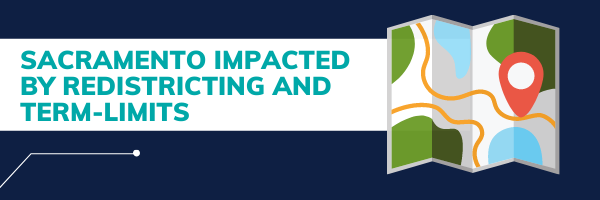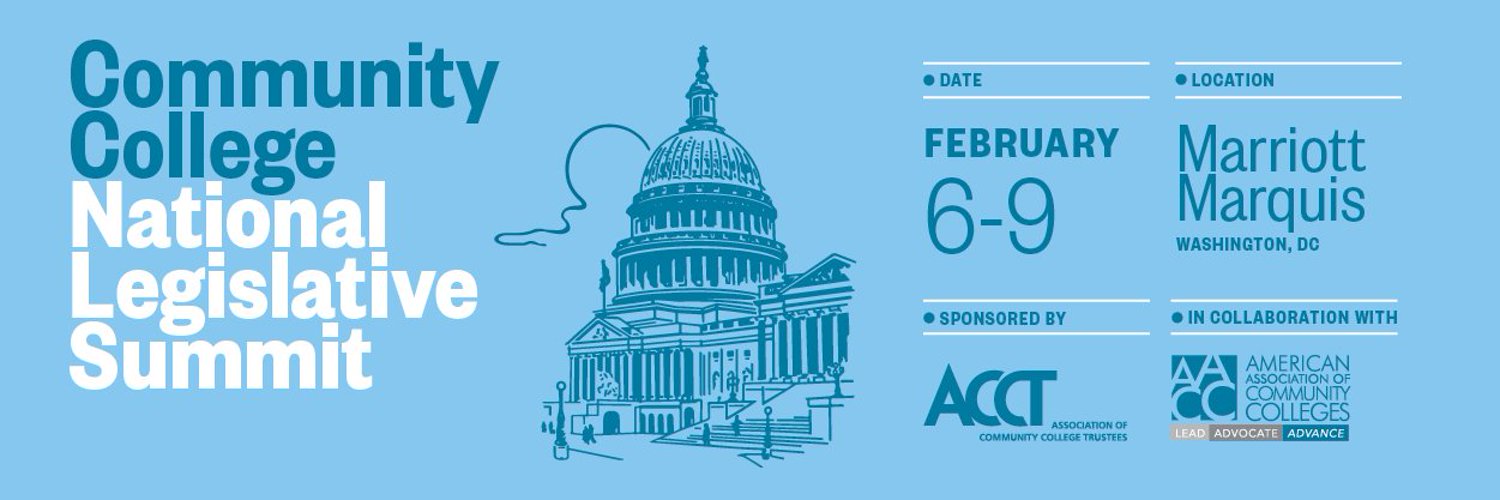In this Issue:
- Increased Investments, New Roadmap, Underscore Governor’s Budget Proposal for Community Colleges
- Sacramento Impacted by Redistricting and Term-Limits
- ACCT National Legislative Summit, February 6-9, 2022
- Join Us for our Next GR Webinar: Tuesday, February 15
- Federal Grant Opportunities
Earlier this month, Governor Newsom unveiled his $286.4 billion January budget proposal and spending priorities for the year. In numerical terms, the budget reflects a sizable surplus of $45.7 billion with $20.6 available for discretionary spending. With these available resources, the Governor announced five priority areas for the overall budget: (1) COVID-19, (2) climate change, (3) homelessness, (4) inequality, and (5) public spending. Taxpayers may also be getting a refund as revenues are estimated to exceed the constitutionally mandated State Allocation Limit (aka Gann Limit) by $2.6 billion.
Proposition 98 funding for K-12 and community colleges for 2022-23 is proposed at a record-breaking $102 billion, an $8.2 billion increase above the 2021 Budget Act. By comparison, Proposition 98 funding in the 2012-13 and 2013-14 budgets were $58.1 billion and $59 billion respectively. For community colleges in 2022-23, the proposed budget provides roughly $1.8 billion in Proposition 98 increases over the prior year, including $842 million (46%) in ongoing and $983 million (54%) in one-time spending.
Major proposed ongoing increases include:
| COLA for SCFF at 5.33% | $409.4 million |
| Part-Time Faculty Health Insurance | $200 million |
| Student Success Completion Grants | $100 million |
| COLA for Adult Ed at 5.33% | $29.9 million |
| Modernize Technology/Protect Sensitive Data | $25 million |
| Enrollment Growth at 0.5% | $24.9 million |
Major proposed one-time increases include: There are other proposed ongoing increases not shown, including, but not limited to, $10 million for financial aid administration, cost of living adjustments for categorical programs, $10 million for foster youth services through the NextUp program, and $1.1 million for the expansion of the African American Male Education Network and Development (A2MEND).
| Deferred Maintenance | $387.6 million |
| Retention and Enrollment Strategies | $150 million |
| Health Care Vocational Pathways in Adult Ed | $130 million |
| Implement Common Course Numbering | $105 million |
| Modernize Technology/Protect Sensitive Data | $75 million |
| Implement Transfer Reforms of AB 928 | $65 million |
The Budget proposes two major changes to the Student Centered Funding Formula. First, the Hold Harmless provision would be made permanent, and beginning in 2025-26, the new fiscal floor would be the districts’ 2024-25 funding plus statutory COLA (cumulative COLAs would no longer apply). Second, an unduplicated first-generation student metric within the SCFF’s supplemental allocation would be integrated into the formula once a reliable and stable data source is available.There are other proposed one-time increases not shown, including, but not limited to, $20 million for emergency financial aid grants to AB 540 students.
Governor Newsom’s proposed budget for higher education includes multi-year compacts with the University of California and California State University, and a new “roadmap” for the California Community Colleges to focus on equity and student success. The key goals and expectations include enhancing intersegmental and cross-sectoral collaboration for timely transfer of community college students, increasing transfers to the state’s four-year postsecondary institutions, improving time-to-degree and certificate completion, closing equity gaps, and better aligning the system with K-12 and workforce needs. While more details on the roadmap are forthcoming, the budget proposal links each goal to specific funding proposals.
While the budget includes provisions on the state’s liability to help address the actuarial shortfalls in CalPERS and CalSTRS, it does not propose a reduction or mitigation of the ongoing employer-side increases for community college districts. This will undoubtedly be a critical point of the League’s advocacy over the next few months.
Key takeaways from the budget:
- Despite major challenges from the pandemic, homelessness, wildfires, and others, the state is on a solid financial footing and is willing to commit resources in key structural and programmatic areas while keeping equity at the forefront.
- New revenue will create opportunities for community college districts to advance local discussions on equity and student success.
- The January Budget is a starting, not an ending point. Just as we are grateful to the Governor for his unprecedented commitment to community colleges, we recognize that both the numbers and policies are subject to change. As such, we have a few short months to communicate with state legislators as to the local impact of these proposals. Please emphasize the importance of local control and remind lawmakers that the best outcomes at our colleges occur when the state budget provides our institutions with stability, predictability, and flexibility.
There are many details of the budget not reflected in this article including new proposals in specific workforce arenas. For more information and analysis on the budget, please see the Governor’s Budget Summary (all chapters), Governor’s Budget Summary for Higher Education, Legislative Analyst’s Office (LAO) Overview of the Governor’s Budget, LAO Overview of Prop 98 Proposals, and the Joint Analysis of the Governor’s January Budget that is specific to the California Community Colleges, prepared by the Chancellor’s Office, Community College League of California, Association for California Community College Administrators, and Association of Chief Business Officers.
The 2023-24 Legislature will look significantly different from the 2022-23 body, with several key members leaving this year. The departure of the Chair of the Assembly Appropriations Committee (Lorena Gonzalez Fletcher), the Chair of the Assembly Higher Education Committee (Jose Medina), and the Chair of the Senate Education Committee (Connie Leyva) are some of the more significant changes that have and will happen by the time 2022 is done.
Since 2012, the California Legislature has been operating under Proposition 28, which modified the term-limit law. Under Proposition 28, members of both houses are limited to 12 years in the state legislature in total, regardless of the service being in the Assembly or Senate.
The first wave of members elected under the proposition will hit in 2024, when many members are termed out. However, with the conclusion of the decennial redistricting process, there has been a significant number of members' shifting.
For example, six Members of Congress have announced that they would be resigning or not running for reelection.
The decision of those members not to run for another term has caused a ripple across the state. Below are the six members of Congress who have indicated they will not seek another term in Washington DC:
- Jackie Speier (14 CD) Retiring
- Devin Nunes (22 CD) Resigned from Congress
- Karen Bass (37 CD) Running for Los Angeles Mayor
- Lucille Roybal-Allard (40 CD) Retiring
- Alan Lowenthal (47 CD) Retiring
- Harley Rouda (48 CD) Not running for reelection
Additionally, the California Senate will have seven members leaving at the end of the year due to term limits, and because of redistricting, at least three additional senators have chosen not to return to Sacramento in 2023. This includes the Chair of the Senate Education Committee (Leyva), who will be completing her eighth year of service in 2022.
- Jim Nielsen (4 SD) Termed out
- Dr. Richard Pan (6 SD) Termed out
- Bob Wieckowski (10 SD) Termed out
- Bob Hertzberg (18 SD) Termed out
- Melissa Melendez (28 SD) Termed out
- Patricia Bates (36 SD) Termed out
- Ben Hueso (40 SD) Termed out
- Andreas Borgeas (8 SD) Not running for reelection
- Connie Leyva (20 SD) Not running for reelection
- Sydney Kamlager (30 SD) Running for Congress, but likely serving in the Senate until the 2022 election.
Finally, the combination of term limits and redistricting seems to have had the most dramatic effect on the Assembly as it looks like 20% of its membership won't return in 2023. This amount of change is impressive, considering none of the lower house members were termed-out this year.
This list also includes three members who resigned during the 2021 fall recess and the Assembly Higher Education Committee Chair (Medina).
- Kevin Kiley (6 AD) Running for Congress
- Marc Levine (10 AD) Running for Insurance Commissioner
- Jim Frazier (11 AD) Resigned on Dec 31, 2021
- David Chiu (17 AD) Appointed San Francisco City Attorney
- Bill Quirk (20 AD) Not running for reelection
- Kevin Mullin (22 AD) Running for Congress
- Rudy Salas (32 AD) Running for Congress
- Jordan Cunningham (35 AD) Not running for reelection
- Chad Mayes (42 AD) Not running for reelection
- Ed Chau (49 AD) Appointed LA County Superior Court Judge
- Richard Bloom (50 AD) Running for LA Supervisor
- Cristina Garcia (58 AD) Running for Congress
- Jose Medina (61 AD) Not running for his last term in office
- Kelly Seyarto (67 AD) Running for State Senate
- Patrick O'Donnell (70 AD) Not running for his final term in office
- Lorena Gonzalez (80 AD) Named head of California Labor Federation
NOTE: This list is based on reports from various news sources and social media posts as of January 17, 2022. The final list may look different.
California trustees, CEOs, administrators, and PIOs are encouraged to attend ACCT’s 2022 National Legislative Summit in person in Washington, D.C. this February. With a new administration in Washington, it is more critical than ever that you maintain a relationship with your congressional delegation. By meeting with them either virtually or in person on a regular basis, you can provide federal policymakers with the critical tools they need to make decisions that will impact your students or college.
The National Legislative Summit is the premier community college advocacy event, bringing together more than 1,000 community college leaders. The event is an opportunity for you to hear from influential decision makers in Washington, meet with your congressional delegation, and network with your like-minded colleges.
The National Legislative Summit is designed to inform and educate community college leaders on federal policy issues that impact postsecondary institutions and students. National Legislative Summit participants will hear from members of U.S. Congress, leading political analysts, and other high-profile speakers about the current climate in D.C., recent elections, and legislative issues impacting community colleges.
To register and for more information, visit https://www.nls.acct.org/
Join Us for our Next GR Webinar: Tuesday, February 15! The League's Government Relations Team hosts a monthly webinar to provide timely updates and information regarding legislation and policy proposals discussed in Sacramento and Washington, D.C. that will impact you, your students, and your institution.
2022 Webinar Schedule
January to October: Every third Tuesday of the month, 11:00 a.m. - 12:00 p.m.
Tuesday, February 15, 11:00 a.m.
Tuesday, March 15, 11:00 a.m.
Tuesday, April 19, 11:00 a.m.
Tuesday, May 17, 11:00 a.m.
Tuesday, June 21, 11:00 a.m.
Tuesday, July 19, 11:00 a.m.
Tuesday, August 16, 11:00 a.m.
Tuesday, September 20, 11:00 a.m.
Tuesday, October 18, 11:00 a.m.
Webinar Details
Telephone Number: (646) 876-9923 or (669) 900-6833
Meeting ID: 623 780 059
Password: 110660
Registration
Be sure to register in advance for this meeting. After registering, you will receive a confirmation email with information about joining the webinar.
Federal Grant Opportunities
Presented by Downs Government Affairs
The League, in partnership with Downs Government Affairs, provides a list of federal grants to assist your community college in improving its programs and services. For a full list of federal grants available to community colleges, visit our Federal Grants page at www.ccleague.org/federal-grant-opportunities.
If you have any questions, please feel free to reach out to Thomas Downs at TCDowns@downsgovaffairs.com.
Upcoming Events
Consultation Council
February 17, 2022 | Zoom
ACCCA Conference
February 23-25, 2022 | Monterey, CA
2022 CEO Symposium
March 3- 6, 2022 | San Diego
A2MEND 15th Annual Summit
March 2-4, 2022 | Hyatt Regency LAX
Board of Governors Meeting
March 21, 2022 | Zoom
2022 CCPRO Conference
April 6-8, 2022 | Lake Tahoe Resort Hotel
2022 APAHE National Conference
April 7-8, 2022 | The Westin Long Beach
For more information, contact the League's Government Relations and Communications staff: advocacy@ccleague.org
Follow League Tracked Bills at www.ccleague.org/advocacy/bill-tracking
For news related to the State Budget and Policy visit www.ccleague.org/advocacy












